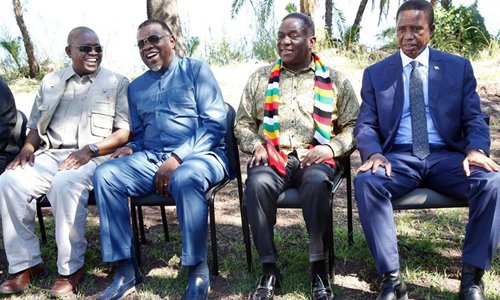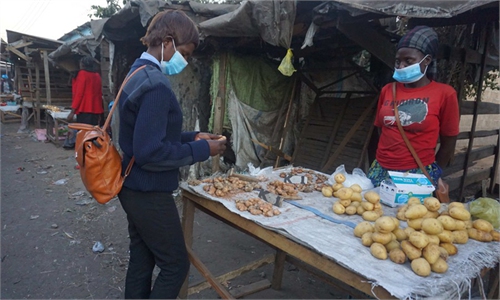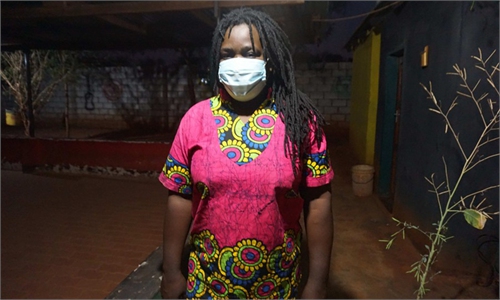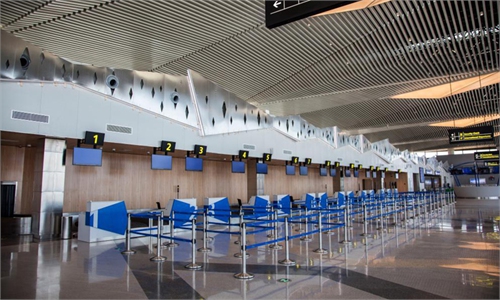
Botswana's President Mokgweetsi Masisi, Namibian President Hage Geingob, Zimbabwean President Emmerson Mnangagwa and Zambian President Edgar Lungu (from L to R) pose for photos during the 2019 Elephant Summit in Kasane, northeastern Botswana, on May 7, 2019. The leaders of Botswana, Namibia, Zambia and Zimbabwe have agreed to pursue an "integrated response" to global outcry over the anticipated re-introduction of elephant hunting. (Photo: Xinhua)
Zambians were voting in nationwide elections on Thursday after a tense campaign dominated by economic woes and the impact of the coronavirus pandemic.Sixteen presidential candidates are vying for the top job, but the frontrunners are incumbent Edgar Lungu, 64, and his long-time nemesis and business tycoon Hakainde Hichilema, 59, who are facing off at the polls for the third time.
Hichilema, who is running for a sixth time, is backed by an alliance of 10 parties. Hundreds of people waited in long queues in the dark - to cast ballots at a secondary school in Lusaka's Matero township. President Lungu was among the first group of people to vote in Lusaka. After casting his ballot at a school in Chawama, a poor neighborhood of Lusaka, Lungu told reporters that "Zambians are ready to vote and they [have]come in numbers."
Rising living costs have eroded the incumbent's support base, surveys suggest, and the election could be even tighter than 2016 polls when Hichilema lost by around 100,000 votes.
Lungu, a lawyer by training, is accused of borrowing unsustainably, particularly from foreign creditors, to finance a spree of infrastructure projects.
Under him, Zambia became the first African country to default on its sovereign debt since the coronavirus pandemic began, while inflation soared to 24.6 percent in June, the highest rate in more than a decade.
Africa's second biggest producer of copper after the Democratic Republic of the Congo, and the eighth producer in the world, missed another debt repayment in 2021. "I am voting for change. We can't continue on this path," said Andrew Daka, 20, who was voting for the first time in his life.
But Lungu says that "things are moving well in the country" and is confident of victory, although his critics point to the high cost of living, poverty and joblessness.
The vote will "be influenced by poor governance and the economy, which is biting," said O'Brien Kaaba, a political scientist at the University of Zambia.
Local and international observers will be monitoring polling stations, some of which will be using a biometric voter identification system for the first time.



